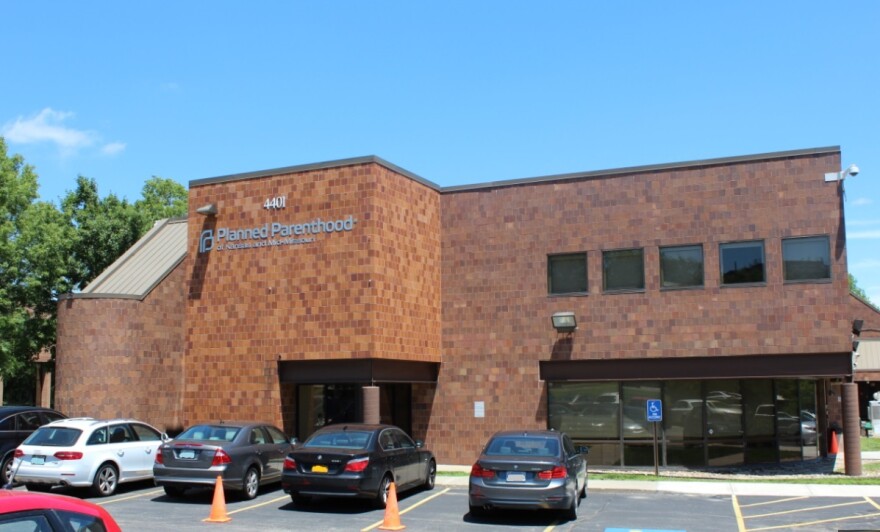Already facing highly restrictive abortion laws in Missouri and Kansas, Planned Parenthood Great Plains now confronts the prospect of losing its federal family planning funds if a proposed Trump administration rule goes into effect.
The administration unveiled a proposal Friday that would make clinics that provide abortion services or referrals ineligible to participate in Title X, which helps fund birth control, cancer screenings and treatment for sexually transmitted infections.
Although the rule must undergo a review process that’s likely to take months, Planned Parenthood officials are already gearing up to challenge it.
About 4 million people nationwide rely on the family planning program, according to Planned Parenthood. Although Planned Parenthood clinics account for just 13 percent of all health centers participating in the program, the organization accounts for about 41 percent of its patients.
Only three of Planned Parenthood Great Plains’ clinics get federal family planning funds, all of them in Missouri. But the money helped underwrite services for 10,000 mostly low-income patients last year, according to Brandon Hill, president and CEO of Planned Parenthood Great Plains.
“So any changes that would exclude Great Plains from the Title X program or seeing those patients would leave 10,000 patients without sexual and reproductive health care,” Hill said.
In addition to Missouri and Kansas, Planned Parenthood Great Plains also operates clinics in Arkansas and Oklahoma – a total of 12 in all four states. The ones that get Title X funding are in midtown Kansas City, Independence and Columbia.
“Our affiliate in particular in this hostile environment is struggling in every way, fighting every fight to serve the folks who are either uninsured, have low income, are often people of color, communities of color,” Hill said. “We are exuding a lot of time and energy so we can serve those individuals.”
Although the White House says the proposed rule won’t prohibit counseling on abortion, it would upend the current requirement that health care providers not withhold information from patients about all their pregnancy options, including abortion.
“We need to really call this policy for what it is: an extreme rule that is opposed by both lawmakers and major medical groups and that is intended to prevent women from getting the basic health care and information they need at Planned Parenthood and is also intended to isolate and attack safe legal abortion in this country,” Dawn Laguens, executive vice president of Planned Parenthood Federation of America, said in a phone call with reporters Friday.
Anti-abortion groups praised the proposal, saying tax dollars shouldn’t be used to fund abortion services – although federal law already blocks Medicaid funding for abortion.
“It's really a wonderful step in the right direction because right now there are organizations like Planned Parenthood, for instance – they get $1.5 million of our tax dollars virtually every day, and so this would probably cut off about 10 percent of that,” said Mary Kay Culp, executive director of Kansans for Life.
“And what it does… is it will attempt to separate the abortion businesses from the family planning businesses and that's really important because we don't need, as taxpayers, to be subsidizing abortion businesses,” Culp said.
Planned Parenthood Great Plains is already fighting multiple legal battles in Missouri, Kansas and Arkansas, seeking to strike down a raft of recently enacted abortion restrictions in those states.
Later this month, the U.S. Supreme Court is set to decide whether to review an Arkansas restriction that threatens to close two of the state’s three abortion providers and make it the first state to effectively ban medication abortions. A federal court blocked the law, which requires physicians who provide medication abortions to have a backup physician with admitting privileges at a local hospital to be on call.
Missouri has a similar provision that’s the subject of a pending court challenge.
Earlier this week, Helen Krasnoff, senior director of public policy, litigation and law at Planned Parenthood Federation of America, said that the restriction has no medical justification and unduly burdens women’s right to a legal procedure.
“For many women, this would effectively ban safe legal abortion altogether because they can't afford the cost of time off work, childcare and travel over multiple days,” Krasnoff said. “Already women in Missouri are choosing to go to states like Illinois to access safe, legal abortion because of the enormous barriers the state has erected.”
KCUR reporter Frank Morris contributed to this article.
Dan Margolies is a senior reporter and editor at KCUR. You can reach him on Twitter @DanMargolies.



